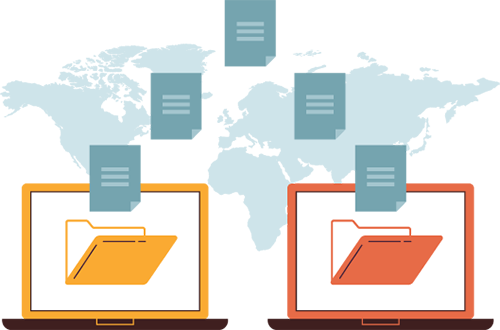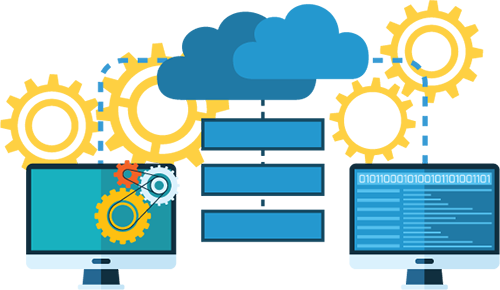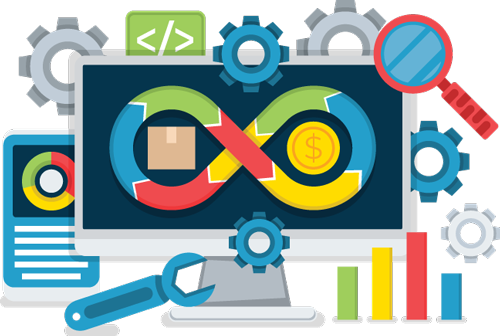What is EDI capable?
Built For

- “What is EDI capable?”
- The meaning of EDI capable
- Components that make your business EDI capable
- The benefits of being EDI capable and Brad presents a case study: The need for EDI capability to streamline operations

Have you ever wondered how businesses send countless orders and invoices around the clock with barely any mix-ups? That’s the magic of Electronic Data Interchange, commonly known as EDI. In the digital marketplace, EDI allows companies to communicate in a common language that machines understand and process.
EDI: The digital language of business
Simply put, EDI is like a digital post office for business documents. At its core, EDI is the structured transmission of data between organizations by electronic means. It replaces fax, email, and postal mail. Documents exchanged via EDI are structured according to a standardized format that allows them to be processed directly by the recipient’s systems, thus facilitating automation and reducing manual intervention.
What is EDI capable?
Being EDI capable is more than just being able to send and receive electronic documents; EDI capable involves a comprehensive readiness to handle various standardized transactions, from purchase orders to invoices, with seamless integration into internal systems like inventory and order management software and QuickBooks. This capability significantly enhances business process efficiency, reduces errors, and improves response times, strengthening business relationships and driving growth.
Ready for the journey?
As we unpack the concept of being EDI capable, we’ll dive into the nuts and bolts of what being EDI capable entails, the perks it can bring to your operations, and the know-how to get your business fluent in this digital dialogue. Whether you’re a business looking to adopt EDI for the first time or seeking to enhance your existing capabilities, this article will provide the insights you need to understand the full scope and potential of becoming EDI capable.
Understanding the meaning of EDI capable
If you’ve ever been in a room where everyone’s speaking a different language, you know how tricky communication can be. Now, imagine if there was a way everyone could understand each other perfectly. In the digital business world, being EDI capable is like having that universal translator, ensuring that different systems can talk to each other without a hitch.
The nuts and bolts of EDI capability
So, what does it mean to be EDI capable? To begin, it is about being able to send and receive EDI documents. That’s just the start. Being truly capable means your systems can interpret, process, and integrate these documents without you having to lift a finger. It’s about having a smooth setup where orders, acknowledgments, invoices, and all those essential documents flow seamlessly from your business partners into your systems and vice versa. They are then automatically processed within your inventory and order software with no re-keying required.
EDI capable vs. EDI compliant: What’s the difference?
Being EDI compliant means you are following the rules of the EDI standards—you have the minimum tools to comply with the EDI standards. But being EDI capable? That’s taking it to the next level. It means you have an entire toolkit—well-integrated systems and processes—to ensure smooth workflows.
Components that make your business EDI capable

- EDI trading partner: Frequently, a big box retailer, an EDI trading partner is a business with which you exchange documents electronically using EDI standards, creating a streamlined communication channel for transactions.
- EDI provider: This is your foundation for EDI compliance. A reliable EDI provider, also called a Value-Added Network (VAN), how your EDI messages travel from point A to B and translates data between different systems into a standardized format.
- EDI management system: Now, for the secret sauce—the EDI management system. Orders flow into your business smoothly and are handled automatically, enabling you to say goodbye to manual data entry.
Why it matters
In today’s competitive marketplace, being EDI capable can be the difference between a business that thrives versus one that survives. It’s about being agile, accurate, and able to meet the demands of partners and regulators alike.
The benefits of being EDI capable
Stepping up to become capable of EDI is a smart move, and here’s why: It opens up a world of benefits that can transform how you do business.
- Efficiency like never before. Imagine cutting down the time processing orders and invoices from days to hours or even minutes. EDI capability does just that by automating the exchange and processing of orders, allowing you to do more with less and do it faster.
- Accuracy. With EDI, orders and documents flow between business systems without human intervention. This accuracy strengthens your business’ reliability and reputation.
- Scalability. As your business grows, so does the volume of transactions handled. EDI capability scales with you, allowing you to manage increased demand without a corresponding increase in staff.
- Cost savings: Let’s talk numbers. EDI capability automates order processing, reduces errors and the time spent on corrections and reconciliation, and slashes the costs associated with printing, storing, and sending paper documents.
- Strengthened partnerships: When you’re EDI Capable, you’re streamlining your operations and making life easier for your partners. This mutual efficiency can deepen trust and collaboration, leading to more stable and fruitful business relationships.
- Compliance: In many industries, EDI capability isn’t just nice to have; it’s a requirement. EDI helps you stay on the right side of compliance, all while providing a secure path for sensitive data.
The bottom line
By being EDI capable, you’re not only keeping up with the present; you’re future-proofing your business. It’s a direct investment in operational excellence and customer satisfaction.
Case Study: The need for EDI capability to streamline operations
Coton Colors, a lifestyle brand celebrated for its catchphrase, “celebrate every day,” found itself at a pivotal growth point. Renowned for their unique kitchen, home, and gift products, they were quickly outgrowing their small warehouse and the capabilities of QuickBooks.
Upgrading inventory and order management, then gaining EDI management capabilities

The brand’s expansion, characterized by an increase in SKUs and overall inventory, highlighted the limitations of QuickBooks. Inventory management became increasingly complex and manual, prompting a search for a more robust solution.
In 2015, they took a significant step by integrating QuickBooks with Acctivate. This solution offered the flexibility of managing multiple warehouses, including tracking inventory destined for international markets.
Three years later, as the company continued to grow, the Acctivate team facilitated a seamless EDI implementation. The EDI capability enabled Coton Colors to efficiently place their products on the shelves of prominent retailers, enhancing their market presence and transforming their process from disjointed and manual to a seamless automated system, significantly reducing the time spent on order processing.
With optimized order management and fulfillment processes, Coton Colors can manage corporate and direct consumer sales order surges, especially during the high-demand holiday season.
Special EDI requirements and looking forward
The new EDI capabilities allow for effortlessly exchanging documents with trading partners via EDI. Special requirements such as allowances and fees were automatically mapped onto orders, ensuring accuracy and compliance with partner specifications.
With the new integrated systems, the brand anticipates more efficient operations, particularly in the bustling fourth quarter. The reduced order processing time and increased accuracy point to a future of streamlined operations and sustained growth.
FAQs about EDI Capability
What exactly does it mean to be EDI capable?
Being EDI capable means that your business has the tools and processes to exchange documents electronically according to EDI standards, and your systems can automatically interpret, process, and integrate these documents into your workflow without manual intervention.
How is being EDI capable different from being EDI compliant?
EDI compliance means you can exchange EDI documents following the set standards, but being EDI capable implies a deeper integration — your systems are equipped to handle and process EDI documents efficiently, contributing to smoother operations.
What are the main components of an EDI capable business?
An EDI capable business typically has an EDI trading partner, an EDI provider or Value-Added Network (VAN), and an EDI management system that allows for smooth, automated transactions and integration with internal business systems.
Why is EDI capability important in today’s marketplace?
EDI capability is crucial for operational efficiency, accuracy, scalability, and compliance. It allows businesses to handle transactions quickly, reduce errors, grow without proportionally increasing staff, and maintain compliance with industry standards.
What are the cost benefits of being EDI capable?
With EDI capability, businesses can reduce the costs associated with manual order processing, corrections, and the physical handling of documents. Automated processes also cut down on the time spent on transactions, leading to cost savings.
How does EDI capability affect business partnerships?
When a business is EDI capable, it streamlines operations for itself and for its partners. This efficiency can lead to stronger partnerships, as it simplifies the transaction process and builds trust through reliable and accurate exchanges.
What kind of businesses need to be EDI capable?
While any business can benefit from being EDI capable, it is especially important for those who deal with high volumes of transactions or work with large retail partners who often require EDI capability for efficient supply chain management.
Call us at 817-870-1311





